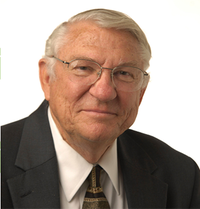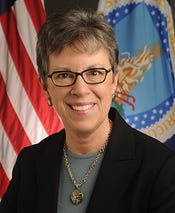Agricultural leaders oppose USDA reorganization outside of Washington, D.C.
Experts say move would disrupt nonpartisan support system for American food and agriculture.
November 28, 2018

Twenty-one leaders from the United States’ agricultural community—including two former U.S. Department of Agriculture chief scientists and undersecretaries of agriculture for Research, Education and Economics—on Tuesday sent a letter to Congress expressing concern about the decision to relocate two USDA research agencies outside Washington, D.C.
The Economic Re search Service and National Institute of Food and Agriculture would be affected. These two agencies are indispensable sources of agricultural and food research, as well as objective national data and analysis for the $1 trillion food, agriculture and rural economies. The Economic Research Service—a statistical agency—would be realigned outside Research, Education and Economics oversight to a policy-supporting office, threatening its role as a policy-neutral agency.
search Service and National Institute of Food and Agriculture would be affected. These two agencies are indispensable sources of agricultural and food research, as well as objective national data and analysis for the $1 trillion food, agriculture and rural economies. The Economic Research Service—a statistical agency—would be realigned outside Research, Education and Economics oversight to a policy-supporting office, threatening its role as a policy-neutral agency.
“The proposed restructuring is a major disruption in the USDA research arm that provides invaluable support for American food and agriculture,” said Gale Buchanan, former USDA chief scientist and undersecretary for REE. “The decades of planning and adjustments that have optimized the work of REE will be dismantled in a matter of months if this proposal is carried out as planned. Congress should block such an upheaval of our nation’s food and agriculture enterprise support system.”
The letter outlines numerous risks associated with relocating National Institute of Food and Agriculture and Economic Research Service outside the Washington, D.C., area:
The loss of direct engagement with the broader scientific funding research community, including the National Science Foundation, the USDA Agricultural Research Service and the National Institutes of Health.
The undermining of the USDA’s funding of research, which has stagnated during the last 40 years.
The weakening of coordination of NIFA and ERS with their sister REE agencies, the Agricultural Research Service and National Agricultural Statistics Service.
The full impact has not been thoroughly examined, according to the signers who are urging Congress to intervene.
“The USDA did not consult stakeholders, Congress or the scientific community prior to this decision, and it is unclear what problems the USDA seeks to address with the relocation of these agencies ,” said Catherine Woteki, also a former USDA chief scientist and undersecretary of the REE. “The high quality of work that these agencies produce will be jeopardized by the substantial staff loss that will occur as a result of the relocation. In addition, moving ERS out of REE to a policy-supporting office is likely to jeopardize the policy-neutral work of the agency.”
,” said Catherine Woteki, also a former USDA chief scientist and undersecretary of the REE. “The high quality of work that these agencies produce will be jeopardized by the substantial staff loss that will occur as a result of the relocation. In addition, moving ERS out of REE to a policy-supporting office is likely to jeopardize the policy-neutral work of the agency.”
The group, along with the American Statistical Association and others, is calling on Congress to protect ERS and NIFA as independent statistical agencies to maintain the quality, credibility and integrity of their research and statistical programs.
“The ASA is supporting the efforts of these agriculture experts and leaders in the broader food, agriculture and rural community who whole-heartedly oppose these ill-conceived changes to the USDA’s research structure and function,” said Ron Wasserstein, the ASA’s executive director. “The integrity of the work being done by these highly specialized and experienced professionals is at risk, and the community as a whole is standing up in their defense.”
Milo Shult—vice president for agriculture emeritus, University of Arkansas, and a signer of the letter—added, “Since the birth of our nation, there have been certain things that our central government must provide. In addition to a strong military, it is critical that we have a system that provides the food security necessary for the health and quality of life for the nation’s citizens. The system has grown, of necessity, to a multidisciplinary nationwide effort cutting across agricultural science, food science, medical science, social science, environmental science and further.
“We are the envy of the world in those programs. We are highly concerned that the removal of NIFA and ERS from the location in our nation’s capital could be the beginning of a dismantling of our agricultural progress,” he said.
In addition to Buchanan, Woteki and Shult, these agricultural professionals signed the letter:
Daniel Arp, dean emeritus, College of Agricultural Sciences, Oregon State University
Kathryn J. Boor, Robert P. Lynch dean, College of Agriculture and Life Sciences, Cornell University
Daniel Bush, vice provost for faculty affairs, Colorado State University
Neville Clarke, director emeritus, Texas Agricultural Experiment Director; former executive director, Southern Association of State Agricultural Experiment Station Directors; chair, Experiment Station Committee on Organization and Policy
Helene Dillard, dean and professor, College of Agricultural and Environmental Sciences, University of California, Davis
Dan Dooley, former vice president, Agriculture and Natural Resources, University of California
Robert Easter, president emeritus and dean emeritus, College of Agricultural, Consumer, and Environmental Sciences, University of Illinois
John D. Floros, president, New Mexico State University
Alan L. Grant, dean, College of Agriculture and Life Sciences, Virginia Tech
Bret W. Hess, interim dean, College of Agriculture and Natural Resources and director, Wyoming Agricultural Experiment Station, University of Wyoming
Cathann A. Kress, vice president for agricultural administration and dean, College of Food, Agricultural and Environmental Sciences, The Ohio State University
Michael D. Lairmore, dean and distinguished professor, School of Veterinary Medicine, University of California, Davis
Daryl Lund, former dean of agricultural and natural resources, Rutgers University and Cornell University; former executive director of the North Central Regional Association of State Agricultural Experiment Stations
Bobby Moser, former vice president, College of Food, Agricultural, and Environmental Sciences, The Ohio State University
Jack Payne, senior vice president, Institute of Food and Agricultural Sciences, University of Florida
Thomas L. Payne, vice chancellor and dean emeritus, College of Agriculture, Food, and Natural Resources, University of Missouri
Gene Sander, president emeritus, former vice president, and dean for Agriculture and Life Sciences, University of Arizona
Lynn Wooten, dean, The Charles H. Dyson School of Applied Economics and Management, Cornell University
Source: American Statistical Association
You May Also Like


